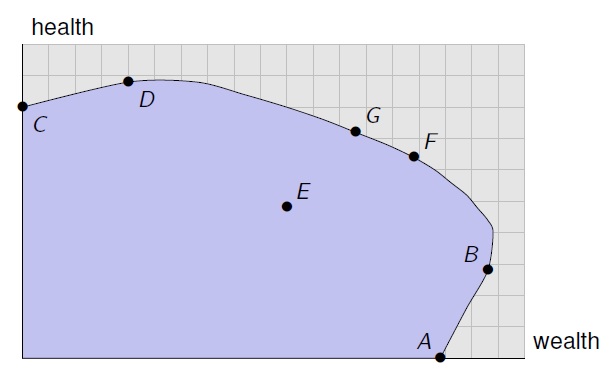
Professor of Economics and Public Policy · Porteño vikingo · Hincha de River
@CamEcon @CambridgeIMS @BennettSchoolPP
How to get URL link on X (Twitter) App



 Let's start with concept of tradeoffs. With aggregate societal wealth and health on the axes, we can show all combinations that we can achieve though different policies. All points in purple region are feasible, those outside it are not. Which point should we choose? 2/17
Let's start with concept of tradeoffs. With aggregate societal wealth and health on the axes, we can show all combinations that we can achieve though different policies. All points in purple region are feasible, those outside it are not. Which point should we choose? 2/17
https://twitter.com/toxvaerd1/status/1317960686216032256?s=20
https://twitter.com/jonheathcote/status/1322963686630264841(2) by design, they set up silos of expertise that seem to have had minimal mutual communication and coordination. Each would give independent advice on different aspects, and each largely ignoring effects of recommendations on other domain.
https://twitter.com/t0nyyates/status/1314870480072060943But one should not lose sight of the overall fire. We cannot do each local part without an eye to the whole. The big difference is of course that local measures have differential impact on incomes and a global public good is being provided.